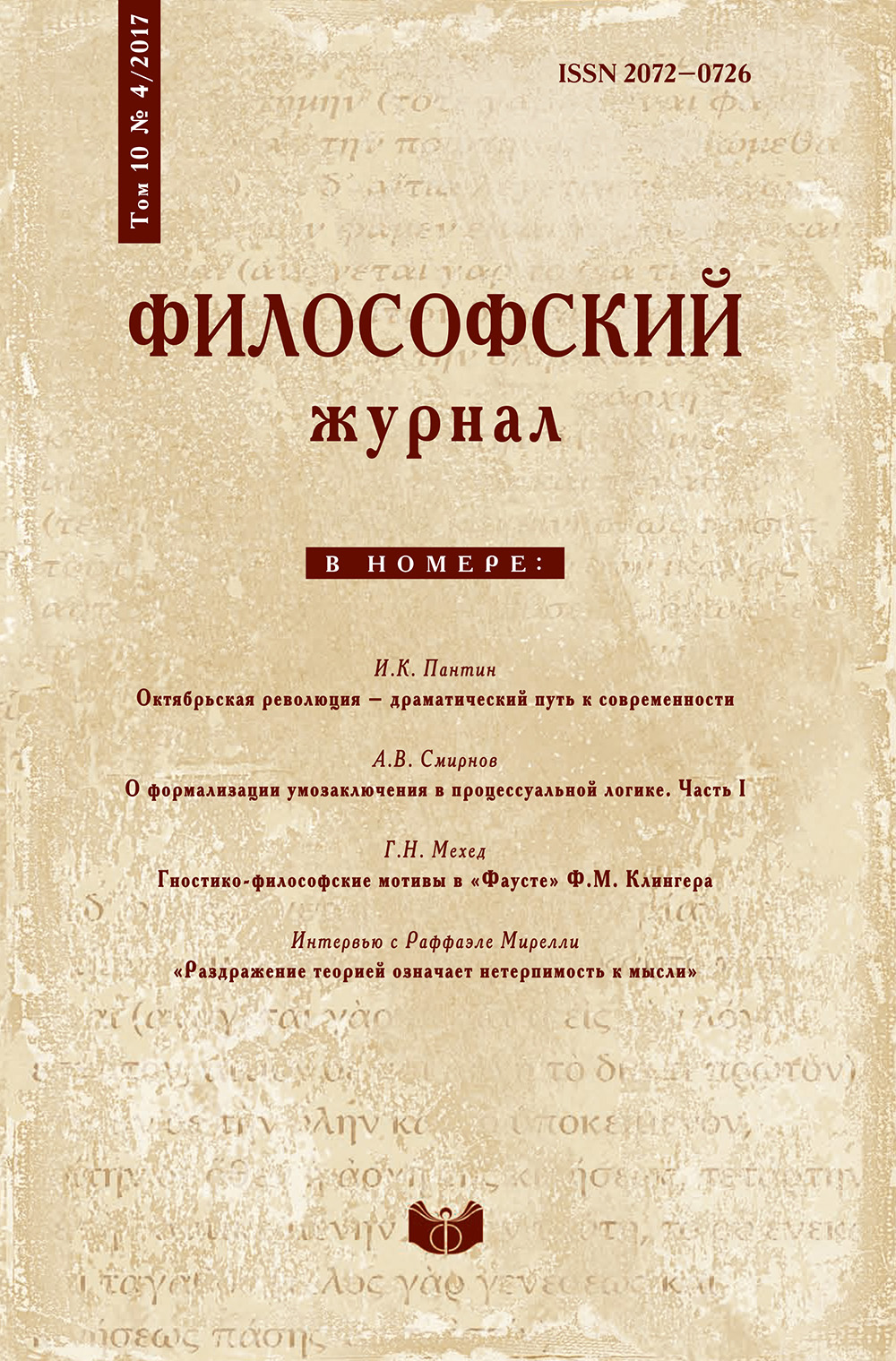Transcendentalism and the arche-fossil: how a phenomenology of ‘non-given’ can be possible?
DOI:
https://doi.org/10.21146/2072-0726-2017-10-4-104-120Keywords:
the arche-fossil, the transcendental, epigenesis, phenomenology, contingency, naturalism, speculative foundations of phenomenologyAbstract
This article concerns the problem of the arche-fossil as a key element in the critique of transcendental philosophy, in particular phenomenology, within the project of 'speculative materialism' of Quentin Meillassoux, where it is represented as a variety of 'correlationism'. The present author argues that Meillassoux's position can be interpreted as sort of anti-traditionalism evolving on the principle of factuality, based on the factor of contingency. It lends itself to comparison with one of contemporary versions of naturalism with which it shares a common view of contingency problem and the assumption of the correlation between reason and nature as being historically and naturally predetermined. Further on, Catherine Malabou's attempt to revive transcendentalism in the form of 'epigenetic rationality', standing in opposition to Meillassoux's philosophy, is brought under consideration. The transcendental persists owing to the notion of epigenesis, first mentioned in §27 of Kant's Critique of Pure Reason and elaborated in connection with the problem of teleology of all living beings. This is how reason gets informed of its own contingency, while not abolishing the immutability of architectonics of transcendental subjectivity. An intelligent discourse about the arche-fossil results possible within the framework of phenomenology where it is fulfilled as an essay of the phenomenology of the 'non-given' in a series of procedures of reducing of the 'non-given' to the given. Once the issue of arche-fossil has been thematized, there ensues a revision of certain guidelines of phenomenology. The polemic against Meillassoux's speculative materialism, where the main problem fields have to be defined from the perspective of correlation between the transcendental and the contingential, helps designate the implications of the speculative justification of phenomenology. Expanding on the works of Alexander Schnell and Iain Hamilton Grant, the author seeks to demonstrate how phenomenology, with its claim for the role of 'first philosophy', endeavours to find speculative self-justification as a transcendental philosophy.






